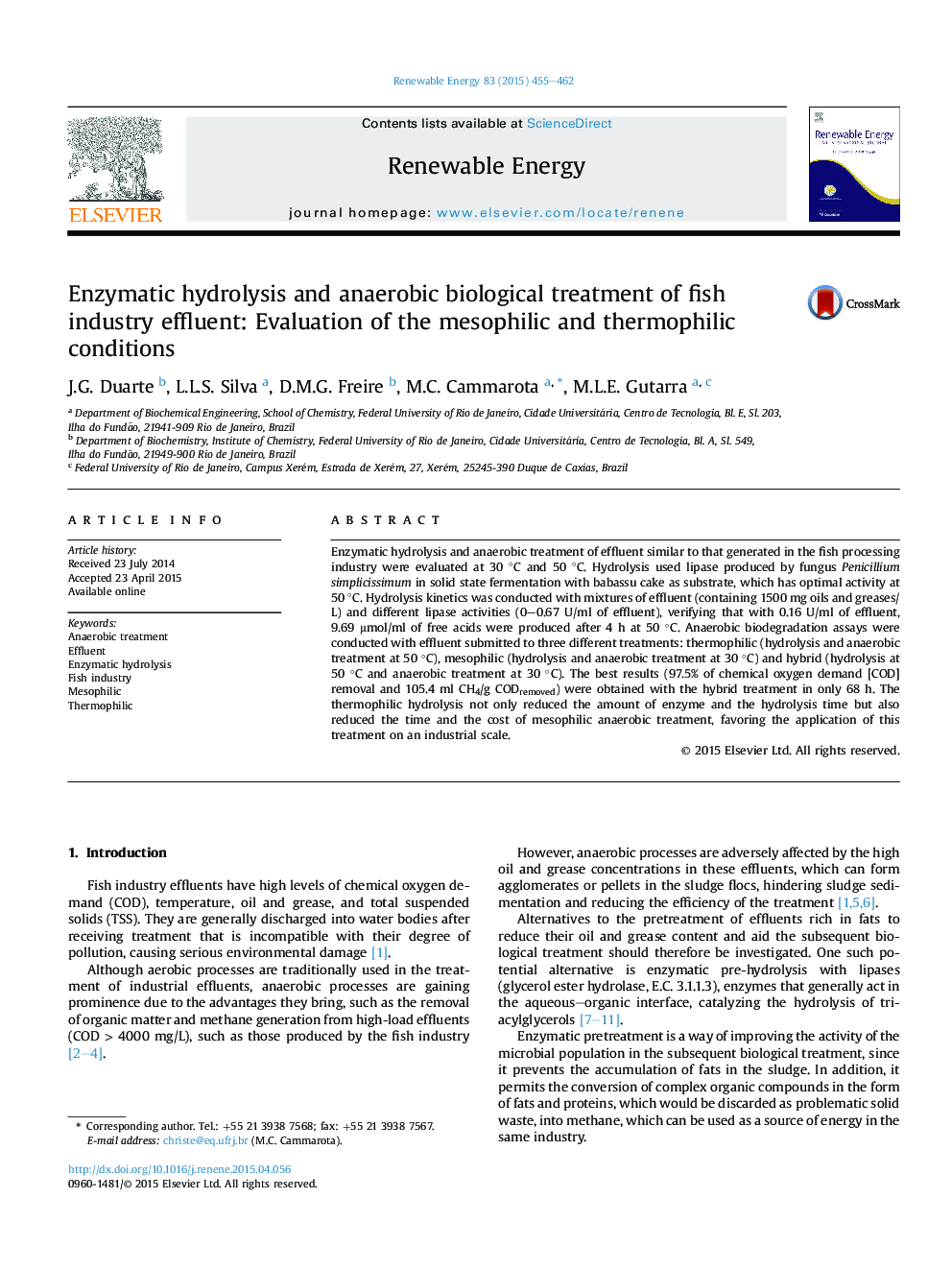| Article ID | Journal | Published Year | Pages | File Type |
|---|---|---|---|---|
| 6767000 | Renewable Energy | 2015 | 8 Pages |
Abstract
Enzymatic hydrolysis and anaerobic treatment of effluent similar to that generated in the fish processing industry were evaluated at 30 °C and 50 °C. Hydrolysis used lipase produced by fungus Penicillium simplicissimum in solid state fermentation with babassu cake as substrate, which has optimal activity at 50 °C. Hydrolysis kinetics was conducted with mixtures of effluent (containing 1500 mg oils and greases/L) and different lipase activities (0-0.67 U/ml of effluent), verifying that with 0.16 U/ml of effluent, 9.69 μmol/ml of free acids were produced after 4 h at 50 °C. Anaerobic biodegradation assays were conducted with effluent submitted to three different treatments: thermophilic (hydrolysis and anaerobic treatment at 50 °C), mesophilic (hydrolysis and anaerobic treatment at 30 °C) and hybrid (hydrolysis at 50 °C and anaerobic treatment at 30 °C). The best results (97.5% of chemical oxygen demand [COD] removal and 105.4 ml CH4/g CODremoved) were obtained with the hybrid treatment in only 68 h. The thermophilic hydrolysis not only reduced the amount of enzyme and the hydrolysis time but also reduced the time and the cost of mesophilic anaerobic treatment, favoring the application of this treatment on an industrial scale.
Related Topics
Physical Sciences and Engineering
Energy
Renewable Energy, Sustainability and the Environment
Authors
J.G. Duarte, L.L.S. Silva, D.M.G. Freire, M.C. Cammarota, M.L.E. Gutarra,
